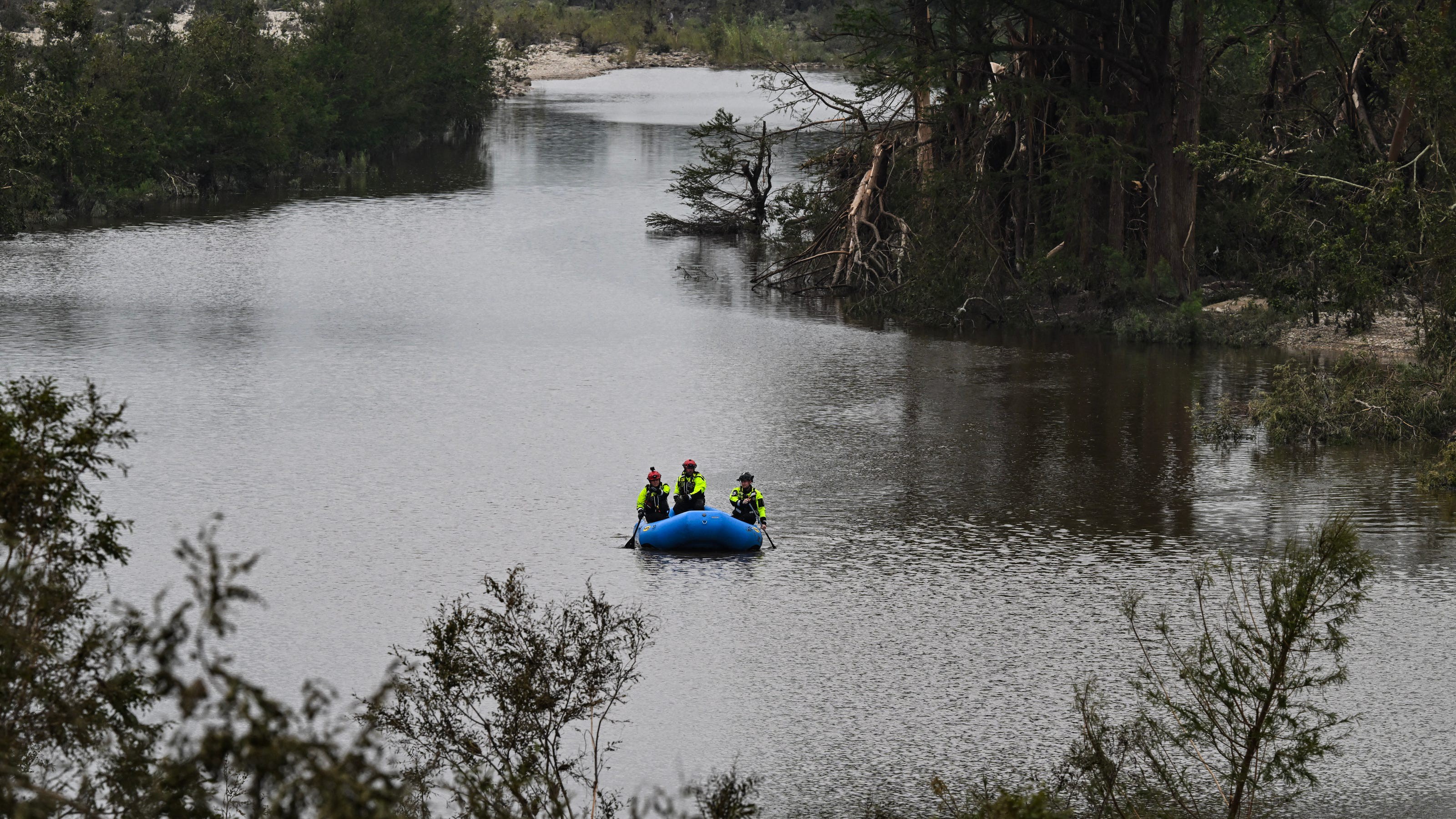news
Mexico Sends Aid to Texas After Deadly Flash Floods
Mexico has deployed volunteers and civil servants to the Texas Hill Country to assist with recovery and cleanup.
Published July 8, 2025 at 4:41pm by Brandi D. Addison

Over 100 people, including dozens of children from Camp Mystic, died in Texas flash floods, the deadliest in the U.S. since 1976. Mexican search teams and emergency crews are assisting with recovery and cleanup efforts in Texas. The floods, caused by remnants of Tropical Storm Barry, surpassed Hurricane Helene's flood-related deaths. Mexico's aid comes amid increased U.S.-Mexico tensions over immigration policies.
In the deadliest flash flood to strike the United States in decades — killing more than 100 people, including dozens of children from the all-girls Camp Mystic on the banks of the Guadalupe River, which surged nearly 30 feet in an hour — Mexico has deployed volunteers and civil servants to the Texas Hill Country to assist with recovery and cleanup.
The Fourth of July disaster now ranks as the worst rain-driven flash flood in the U.S. since the 1976 Big Thompson Canyon flood in Colorado, which left 144 dead.
It also surpassed the number of flood-related deaths from Hurricane Helene, of which 95 of the storm’s fatalities were attributed to floodwaters, though the storm claimed more than 250 lives overall, according to the National Hurricane Center.
In the days since the disaster, volunteers, government officials and celebrities — from local to international — have stepped in to support response efforts.
Among those assisting are search teams and emergency crews from Mexico, who have joined overwhelmed local responders in searching for the missing and helping clean up devastated communities.
According to a Facebook post by the Dirección de Protección Civil y Bomberos de Acuña, Coahuila, nine members of Mexico’s Civil Protection Water Rescue Team and four members of the nonprofit Foundation 911 arrived in Texas on Sunday morning to aid in the response.
The efforts come amid a backdrop of tightening U.S. immigration policies under the Trump administration — most notably the creation of a controversial detention facility in Florida, informally dubbed “Alligator Alcatraz.”
Built in just eight days on a remote Everglades airfield, it’s surrounded by swampland known for dangerous wildlife, earning criticism from many as a de facto "concentration camp" for migrants. Florida authorities, including Gov. Ron DeSantis and Attorney General James Uthmeier, have defended it as a deterrent against human smuggling — ready to house thousands under swift processing and deportation protocols.
Despite escalating political tensions between the two countries since President Donald Trump’s inauguration in January — and while facing its own significant flooding from the same storm system — Mexico has once again extended support.
Tropical Storm Barry made landfall on Mexico’s Yucatán Peninsula just days earlier before moving north and unleashing catastrophic flooding across the Texas Hill Country.
As the storm’s moisture stalled over the region, it dumped up to 20 inches of rain in some areas. The Guadalupe River swelled rapidly, rising to nearly 40 feet in places. Dozens of children at Camp Mystic — in a cabin just 500 feet from the river — were asleep when the water began to rise.
One user on X called Mexican responders “real heroes and stewards of the land, no matter where the borders are placed,” while another noted that Mexico has “historically offered disaster relief to the U.S., even during political tensions.”
That history includes the aftermath of Hurricane Harvey in 2017, when the Mexican government offered a caravan of 25 trailers filled with rice, beans, coffee, chocolate, and other aid, including medical teams, beds, mobile kitchens, generators and rescue personnel, according to CNN. Though Texas Gov. Greg Abbott accepted the offer, it was never formally acknowledged by President Trump and was ultimately rescinded when Hurricane Katia struck Mexico just days later.
“We are very pleased to be able to support our brothers in need on the other side of the border,” Carlos Manuel Sada, Mexico’s late undersecretary for North American relations, said then.

